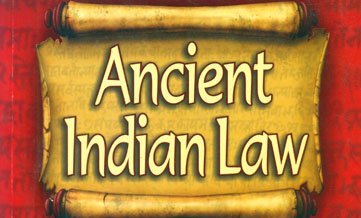“Knowledge is power but culture is its sheen”.– Francis Bacon.
During the Covid-19 you must have been aware of the power of knowledge. The virus, as they say, is not natural, rather a product of the human brain to cause biological war. Thus knowledge with its power can conquer the whole world. However, it has two perspectives–whether to be a boon or a curse. All the educated people are not knowledgeable, but every knowledgeable person is educated. Knowledge and Culture are two different things but are very much connected to each other. Knowledge refers to reason. Culture refers to emotion. These are like the two most important parts of our body, i.e. brain and heart. The whole body would cease to function without synchronizing the two. So both of them play a momentous role in life. Knowledge and Culture are inter-dependent. In this era of globalization, you lack cultural identity. This crisis of Cultural identity may play havoc in the lives of many. What do you think?
What is Culture?
“Culture is a way of coping with the world by defining it in detail,” said Malcolm Bradbury. With an apology to MK Gandhi, Culture is reflected by the hearts and souls of the people of a nation. Culture, however, has relative freedom and can offer something valuable and precious to the next generation. A society without culture is like a cup without tea. The people stay together in a community and share some values that are common. This is known as Culture. It is a known fact that every individual is different and has some positive and negative traits in his or her character, so is the culture. The culture of one nation can never be similar to the other country. It has also its pros and cons. Thus your Cultural identity provides a mega offer to the whole world.
What is Identity?
The term “Identity” refers to the self-analysis of an individual or a community. This has the power to refer to an organized existence to the individual or the community. It denotes something unique or distinct but can be internal or external. The internal aspect can persist through change, but the external aspect changes according to the circumstances.
Identity is a tag that is tied to the personality of an individual. This denotes the way of recognizing a person or a community. The Cultural identity, thus, deals with all the metaphysical connotations of a country. For example, Western countries give more importance to Utilitarian things, but Eastern countries believe more in spiritual theories. This is the clash between reason and romance.
Identity leads to domination. During the Franco-Prussian War(1870-1871)France was defeated by Prussia led by Bismarck. Prussia then consisted of Germany, Poland, and parts of Austria. The French districts of Alsace and Lorraine had passed into Prussian hands. Instead of the French language, the German language had to be taught in the schools. The students felt even the pigeons would be forced to coo in the German language. It was like a punishment to them. Language is the most important thing in a person’s life. It is a way of expression. So it is related to mind and heart both. That is why you feel so keen on your mother- tongue. The German wished to force their identity on the French and they used the language as their tool to influence the existing culture, hence leading to Cultural invasion in a country.
What is Cultural Invasion?
Cultural invasion denotes dependence on other nations. It tries to make the cultural foundations of a country weaker. It tries to establish a different set of values to supersede the prevalent culture of a nation. Indian culture is based on Vedic culture. This inculcates different values in our society.
What are values?
Values denote humanity, fraternity, sympathy, compassion, kindness, tolerance, selflessness, and many other things. You are a human being. So these qualities reside in your character. You have to be conscious of them without ignoring them. Indian culture is more oriented towards them as it follows the Sanatan dharma in most places. The Cultural invasion can bereave you of these values that are very important in human life.
Mogul dynasty reigned over India for a long time. This was only done to satisfy their lust for power. Many libraries in Nalanda, Ujjain, and other places were ruined by them. Then came the British followed by the Western culture in America based on Utilitarian society and Technology, a result of the industrial revolution. Britishers burnt books and universities. A huge number of books on Ayurveda were burnt in Kerala. False translations were done. Many Indian scholars were forced to write based on the manuscripts taken away from India, but their names were not published. In the field of Science and technology also they took help from the Indians, but their own people were in the limelight. The English language became so powerful that it became a global language.
Consequences of this Cultural invasion in India
The Western culture is more inclined to materialistic life that is oriented towards physical comforts. This has given preference to machines and mechanical life. The pleasures can be relished when you are young, but at a certain age, you find that you have all the physical comforts with a void lurking in your soul. You then engage in meditation or spiritualism and are in search of peace. You spend most of your life to fulfill your dreams. For this money is essential. So you try to mint money and are ambitious.
Ambition is like choler— they say. Choler refers to irascibility. You cease to be tolerant of others, hence are against the values related to peaceful co-existence. Reason becomes more influential in your life. You lose the importance of emotion. You become more selfish and feel that whatever is useful should be encouraged and other things should be ignored. Technology is instrumental in indulging such concepts as it provides everything at your doorstep. When you are able to enjoy the physical comforts, you feel reluctant about your emotional needs. But this can pose a grave threat to the total culture of a country that would be devoid of human feelings and values.
Technology creates havoc sometimes leading to Depression and Suicide.
The family relationships are at stake. The parents are more involved with their mobiles and laptops than their children. People in general try to shirk their responsibilities and are even disoriented. They are like a drifting generation that is in search of happiness having a void in their emotional quotient. Depression has become a well-known term for the whole world, especially India leading to suicides. Earlier children enjoyed staying in the joint families though with a few shortfalls. They relished the company of their cousins, uncles, and aunts. They never suffered from a sense of isolation as they are suffering nowadays. However, it is the other way round if you handle technology with its positive aspects.
The other side of Technology
Technology can do wonders, no doubt. How or what—that would be totally foolish to be discussed here. In this digital era where you are surviving with its help in every sphere of life, it cannot be accepted as a challenge to get rid of this wonderful creation of the human mind. But a balance has to be maintained to avoid its negative impacts on the cultural facet.
Conclusion
Whether the cultural identity can be a boon or curse depends on the mindset of the people. Every culture has its pros and cons. Now you have to decide what to accept or reject without hampering your National, Social and Emotional backdrop or framework.
“Culture creates awareness around issues, it entertains and saddens, it can encourage commitment to a social contract or strengthen personal hygiene in public. Culture is powerful. Culture creates the icons we follow, that we see ourselves in, that we orient ourselves toward. It’s the culture that tells us to love or hate, accept or tolerate, embrace, or reject.” Negin Farsad, How to Make White People Laugh
1,724 total views, 1 views today



Very well written Kajari ji. You explained all your aspects in detail.
The term “false translation” caught my attention. False translation can do much harm to a well established culture. A detailed write-up/discussion is needed..
Cultural identity has slightly been seen in negative light by citing German Prussian occupation of France. But a strong cultural identity has helped nations to overcome agression and attacks from adversaries.
India long history of attack and rule by foreign powers The Moguls, British, Portugal despite being prosperous civilization was possible as the people didn’t have a strong common cultural identity.
It’s important for nation to have it’s identity, it’s culture, it may not be related religion but it’s necessary for a nation to exist.
I read the article of Ms Kajari Guha. She is right. Both are important, knowledge and culture. We must find the balance in both values. Unfortunately in Hungary we have the same problem. After the Second World War Ukraine took a part of our land of the Hungarian country. The people there are Hungarian and speak their mother tongue. But the Ukraine government forces them to learn first of all the Ukrainese language and use it everywhere in that country. They prohibit Hungarians from using their own language, even in schools. The same happened in British India. It is a shame. Even now in the 21-st century.